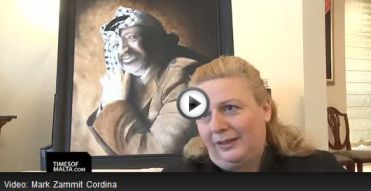Everything you need to know about today’s media coverage of Israel.
Today’s big stories were UNESCO fallout, lingering issues from the recent Gaza rocketfire, and a surprising NY Times op-ed.
UNESCO
• Now that Palestine is a member of UNESCO, the US has cut funding and Canada is weighing its options. And the Palestinians? They’re already preparing a list of West Bank religious sites to protect take over. The Sydney Morning Herald writes:
Joseph’s Tomb in Nablus – a site important to Christians, Jews and Muslims – has been at the centre of deep sectarian conflict. With UNESCO membership, the Palestinian Authority would now be responsible for ensuring the site was protected, the official said.
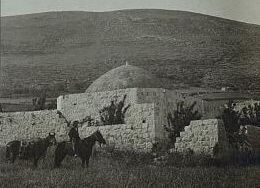
• Karl Vick (Time) gets the vote’s “symbolism” right and raises an interesting procedural question that could concievably block the Palestinians from taking a seat in the organization:
Unesco’s approval of full membership for Palestine is not without practical significance: The U.N. organization bestows and enforces the status of World Heritage Site, and with portions of the Heritage-aspirant Dead Sea located in Palestinian territory, as well as Bethlehem’s Church of the Nativity and the Hebron tomb of Abraham and his family, membership will give Palestinians more say in some of the most sensitive places on the planet . . . .
The membership becomes effective only when Palestinians sign and ratify the Unesco constitution, something that presumably would be done by a sitting legislature. That’s something Palestine has lacked since Hamas took over the Gaza Strip . . .
• Believe it or not, a closer look at the UNESCO vote indicates that key support for Palestinian statehood is actually evaporating. Bloomberg News explains why:
While Palestinians claim they enjoyed a two-thirds majority in the UN General Assembly in New York, the number of abstentions in the similarly sized Unesco assembly was more than expected, said Hussein Ibish of the American Task Force on Palestine, a nonpartisan Washington-based group that advocates a peaceful two-state solution with Israel . . . .
Among the more than 52 countries that abstained from voting in Unesco, there were three critical Security Council members — Portugal, Colombia and Bosnia and Herzegovina. That is a blow for Abbas, who had been courting them personally for months to try to gain the upper hand in the 15-member council.
 • A Financial Times staff-ed (click via Google News) lauds UNESCO and Palestinian statehood. This snippet’s particularly smarmy:
• A Financial Times staff-ed (click via Google News) lauds UNESCO and Palestinian statehood. This snippet’s particularly smarmy:
Finally there is a more immediate reason why Washington should take a far less obdurate stand on Mr Abbas’s initiatives. The Palestinian leader has chosen to pursue statehood through non-violent means. But he has been weakened in the divided Palestinian camp after the prisoner exchange negotiated by the hardline Hamas with Israel.
Unesco’s vote gives Mr Abbas and his campaign for statehood a much-needed boost.
And in a Christian Science Monitor blog post, Dan Murphy doesn’t think the UNESCO vote’s a big deal:
Israel says the vote makes peace harder to achieve. But it’s hard to see how membership in UNESCO (which coordinates educational exchanges, certifies “World Heritage Sites,” and is generally the UN’s culture wing) makes peace less possible. The vote reflects the broad views of the UN’s member states: That it’s time for a country called “Palestine” to be admitted as a member to the UN.
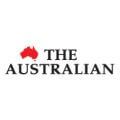 But Palestinian unilateralism isn’t something that deserves boosting. As this staff-ed in The Australian points out:
But Palestinian unilateralism isn’t something that deserves boosting. As this staff-ed in The Australian points out:
Thus, peace prospects have been dealt yet another blow. And all for what? The Palestinians will doubtless use their new membership to get UNESCO to grant World Heritage status to important historical sites as part of Palestine, especially those in areas controlled by Israel. That will only exacerbate the situation. There is no aspect of the UNESCO vote that makes sense beyond grandstanding and the desire to make a symbolic gesture. It neither changes the situation on the ground in the Middle East, nor does it advance the cause of getting peace talks restarted. Instead, it prejudices UNESCO’s best interests and riles the US and Israel, the two countries with which, like it or not, the Palestinians will have to negotiate if they are ever to achieve statehood.
See also this Wall St. Journal staff-ed (click via Google News) and Stephen Huntley’s take in the Chicago Sun-Times.
• Best I can say about this fictional Times of London snippet is that it’s A) buried at the very end of an article, which is B) behind a paywall:
Peace talks broke down 14 months ago, when the Palestinians refused to continue until Israel halted settlement growth in the West Bank, which is deemed illegal by the international community.
Uh, Israel froze settlement activity. Abbas still didn’t talk.
• The Palestinians are setting their sights on joining 16 more UN agencies.
Dialing Down Gaza Rockets
• Egyptian officials told AFP their mediation averted a “large scale” IDF operation in Gaza.
• That video of a four rockets being launched from the back of a truck in rapid succession may have been faked. Israel National News (via Israel Matzav) points out the IDF didn’t detect any multiple launches:
If the video was real, it probably was taken in another country, such as Iran or Lebanon . . .
• Worth reading: How Islamic Jihad is Becoming a Threat to Hamas:
In the past 48 hours, top Egyptian security officials have been talking to Islamic Jihad leaders and representatives, over the heads of Hamas officials, about a cease-fire with Israel . . . .
Some Palestinians in the Gaza Strip said on Sunday that Hamas is probably afraid of a violent confrontation with Islamic Jihad, whose members have managed to smuggle into the Gaza Strip new weapons stolen from Libya.
Besides, Hamas can’t afford to be seen as playing the role of “border guard” for Israel.
Hamas is the loser from Libyan arms smuggling? Somebody’s twisted mind is one step away from blaming Israel for the Libyan weapons free-for-all because it undercuts Hamas . . .
Arab Spring
• Suha Arafat lashes out at Tunisian authorities who issued a warrant for her arrest. The Times of Malta caught up with her easily enough:
“If the Arab Spring will bring injustice, then we don’t need this Arab Spring,” an angry Ms Arafat said.
• Asharq al-Awsat takes note of Bashar Assad’s media charm offensive which I find charmlessly offensive:
In just one week, Syrian President Bashar al-Assad has conducted two interviews with the western media; namely with the British “Sunday Telegraph” newspaper, and with Russia’s state “Channel One”. Whilst Syrian presidential adviser Bouthaina Saaban was also interviewed by Britain’s “Independent” newspaper, and Damascus also allowed “Washington Post” correspondent Liz Sly to accompany Syrian security officers on a tour of Damascus.
As part of this media campaign, the Syrian officials have tried to promote the idea that the Middle East will collapse should the al-Assad regime be ousted from power.
• AFP: An Egyptian military court gave six-month suspended jail sentences to 73 people accused of attacking the Israeli embassy in Cairo. You didn’t expect justice, did you?
 • A black Al-Qaida flag was seen flying atop a Benghazi courthouse alongside the Libyan national flag. According to the Daily Telegraph, the National Transitional Council denied any connection.
• A black Al-Qaida flag was seen flying atop a Benghazi courthouse alongside the Libyan national flag. According to the Daily Telegraph, the National Transitional Council denied any connection.
Just another reason the Arab Spring has me checking out geeky worry bead tutorials.
• Jeffrey Goldberg laments the loss of Col. Gaddafi’s literary output. The tyrant was a man of letters — too many, actually — but that didn’t stop one US firm from trying to help the tyrant from producing a book.
• Sami Moubayed: Hezbollah’s walking a tightrope with the Syrian uprising.
Rest O’ the Roundup
• Richard Goldstone got op-ed space in the NY Times for a well-articulated debunking of the Israel-apartheid canard:
While “apartheid” can have broader meaning, its use is meant to evoke the situation in pre-1994 South Africa. It is an unfair and inaccurate slander against Israel, calculated to retard rather than advance peace negotiations . . . .
In Israel, there is no apartheid. Nothing there comes close to the definition of apartheid under the 1998 Rome Statute: “Inhumane acts … committed in the context of an institutionalized regime of systematic oppression and domination by one racial group over any other racial group or groups and committed with the intention of maintaining that regime.”
The fact that it’s authored by the man who also authored the infamous Goldstone report is, unfortunately, a bit distracting. See my colleague Simon Plosker’s reaction.
• Reuters refuses to fire a journalist who sent an email from a Reuters address supporting Palestinian statehood. The Jerusalem Post writes:
A spokesperson for the news agency called the letter sent by Svebor Kranjc to the European Jewish Congress (EJC) last September regrettable but confirmed he would remain in his position.
“Both Reuters and the employee involved regret the incident, and Reuters has taken appropriate action,” a spokesperson wrote in an e-mail.
Approrpriate action? Reuters probably gave Kranjc the UNESCO beat.
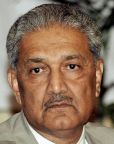
• UN investigators discovered another mysterious site in Syria that was probably intended for nuclear use. There’s no proof but plenty of suspicion.
According to AP, the complex in question appears to be a cotton-spinning plant — which closely matches the design of a Libyan uranium enrichment plant built under the guidance of Pakistani nuclear scientist A.Q. Khan.
The IAEA also obtained correspondence between Khan and a Syrian official.
They didn’t discuss spinning cotton.
• Israel and Turkey are at odds over a new Turkish spy satellite project:
Concerned that the satellite will gather images of its territory, Israel has pressured France, which is working on the construction of the satellite in cooperation with the Italian-based company Telespazio, to stop the project. Given the possibility that its efforts in France may yield no results, Israeli officials are also lobbying in Ankara.
Once the satellite is launched in 2012, Turkey will be able to sell the images it obtains to other countries as well. Israel is currently attempting to negotiate with Turkish officials in order to ensure Turkey does not sell images of Israel to other states and Palestine. However, the response from Turkish officials was clear: “We will decide how to use the images taken by our satellite.”
• In a NY Times op-ed, Dimi Reider frets over Anat Kamm and Israeli press freedom.
• The LA Times picks up on the IDF’s Arabic Facebook page. This snippet indicates to me that Maj. Avichay Adraee and the IDF Spokesperson’s social media people “get it.”
Adraee acknowledged that maintaining platforms with Arabic content that would be valued as a legitimate source of information and not dismissed as propaganda could be a challenging. But he said the effort was necessary to ensure more balanced dissemination of information.
Having a media presence only when responding to crises doesn’t build a relationship or trust, Adraee said. It’s a relationship that needs to be nurtured and maintained on a daily basis both through traditional and new media, he added.
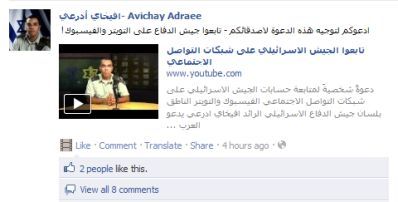
• This commentary in Zaman is a great example of soft diplomacy in action:
The Turkish people have been very impressed with the aid offers coming from all around the world. Even though relations between Turkey and Israel are currently strained due to the fallout of the Israeli raid of the Gaza-bound Mavi Marmara aid flotilla that resulted in nine Turkish deaths last year, it was a breath of fresh air to find that Israel was one of the first countries to extend a hand to Turkey.
• Reuters breaks out the violins plugging ICAHD‘s latest allegations.

